Marlon Brando’s “Streetcar” Co-Star Called Him “Psychotic,” New Book Says
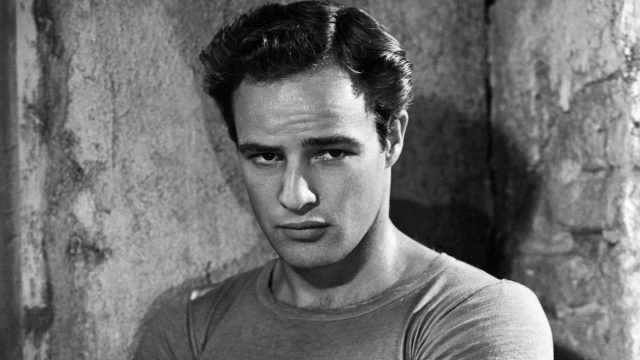
Stanley Kowalski in A Streetcar Named Desire is one of Marlon Brando‘s most famous roles. He played the character both onstage in Tennessee Williams‘ play and in the 1951 movie adaptation. But, even though he was just 23 years old and at the start of his career when he was cast in the production, he was already making some waves. And a couple of his co-stars made it known how unhappy they were working with him.
An excerpt of the new book, The Method: How the Twentieth Century Learned to Act by Isaac Butler, was published by Slate and looks at Brando’s time starring in the stage production of A Streetcar Named Desire. Two of his co-stars had a problem with the future movie star, with one going to so far as to call him “an impossible, psychotic b******.” Read on to find out more.
RELATED: See Marlon Brando’s Grandson, Who Is a Major Model.
Brando irked his co-stars during rehearsals.
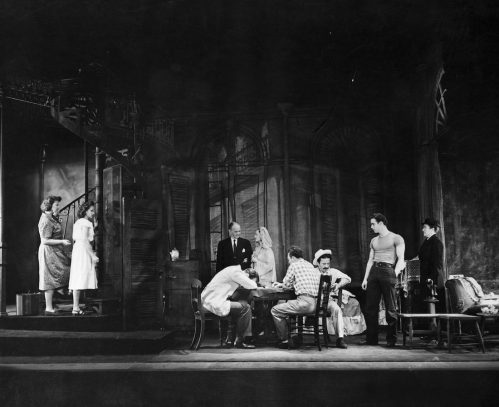
Brando did a few things that irritated his co-stars during rehearsals for Streetcar. According to The Method excerpt, he showed up late, had trouble memorizing his lines (which may have been due to his dyslexia), and played his scenes differently from day to day, making acting opposite him difficult.
Karl Malden, who played Mitch, explained, “I like to be cooperative in a scene, to help someone deliver in any way I can. Marlon’s attitude was very much, ‘This is how I’m going to play this scene today. I may play it differently tomorrow. You have to figure out what you’re doing yourself.'”
Jessica Tandy had strong words for Brando.
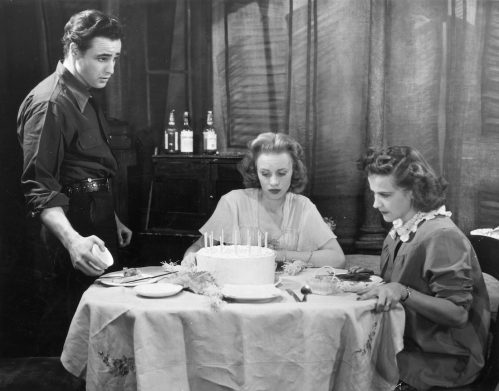
Jessica Tandy played Blanche in the stage play and also took issue with the way Brando operated, calling him “an impossible, psychopathic b******,” according to Butler’s book. Apparently, Brando and director Elia Kazan thought that Tandy was jealous, because Brando’s performance was causing audiences in early performances of the show to side with Stanley and not Blanche. Tandy was precise in the way she played her part while Method actor Brando would try out new ideas.
RELATED: For more celebrity news delivered right to your inbox, sign up for our daily newsletter.
The actors tried to bury the hatchet.
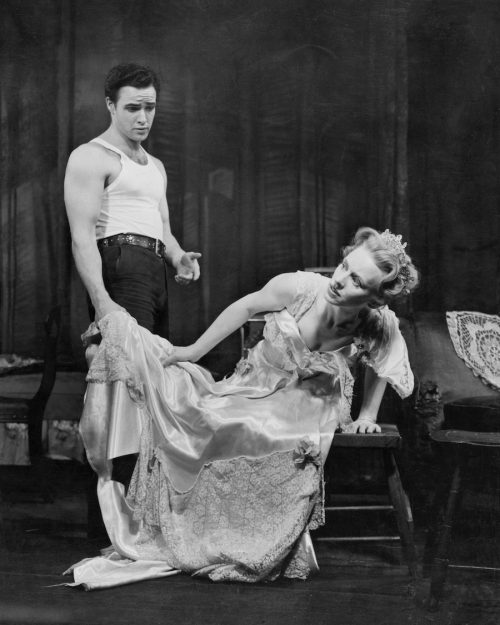
When the play officially opened, the entire cast was praised, with Tandy singled out in the New York Times review. Brando apologized, poorly, to Tandy and then wrote her a letter explaining himself. “I was aware that my apology to you was insufficient to an obvious degree,” he wrote. “When I am confronted with a situation wherein I feel compelled to express my feelings directly, I am not surprised to find my mouth full of stones.” He also pointed out her “gracious behavior to [his] ungraciousness.”
Tandy also wrote to Brando and tried to offer advice. Her letter read in part that his actions were “bound to hurt [him] eventually and earn [him] a reputation for irresponsibility which [she didn’t] think managers or directors [would] tolerate, despite [his] unusual abilities.”
Brando went on to play Stanley in the Streetcar film, while the role of Blanche was re-cast with Vivien Leigh.
That wasn’t the only time Brando clashed with co-stars.
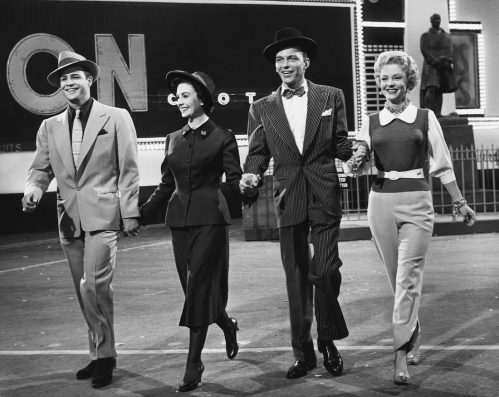
Other stories have come out over the years about issues colleagues had with Brando on set. For instance, in 1955, Brando starred with Frank Sinatra in Guys and Dolls, and they did not get along. As reported by Closer, Sinatra’s dislike of Brando began when Brando was cast in On the Waterfront in the role that Sinatra wanted. So, he went into Guys and Dolls already holding a grudge against his co-star.
“Sinatra came out of the glamour of Hollywood in the ’40s, while Brando was the new breed, who had open disdain for Hollywood,” Turner Classic Movies host Ben Mankiewicz told Closer. “I don’t think Brando came in hating Sinatra, but he grew to.” Sinatra reportedly referred to Brando as “mumbles.” Brando is said to have gotten back at Sinatra by repeatedly messing up his lines during a scene in which Sinatra’s character had cake, so that he would keep having to eat it over and over again. Mankiewicz explained, “He definitely did it on purpose. He was punishing Sinatra for his disruptive behavior.”
RELATED: This HBO Star Requested Some of Her Racy Scenes Be Cut.